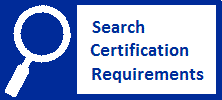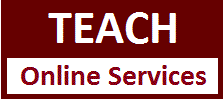CTLE Language Acquisition Requirement
The continuing teacher and leader education (CTLE) language acquisition requirement varies by certificate holder.
- ESOL and bilingual education teachers. Educators who are subject to CTLE, and hold a Professional English to Speakers of Other Languages (ESOL) certificate or Bilingual Education extension, must complete a minimum of 50 percent of their required CTLE clock hours in language acquisition aligned with the core content area of instruction taught, including a focus on best practices for co-teaching strategies, and integrating language and content instruction for ELLs.
- Other teachers, school building leaders, and school district leaders. All other Professional teacher, School Building Leader, and School District Leader certificate holders must complete a minimum of 15 percent of the required CTLE clock hours dedicated to language acquisition addressing the needs of ELLs, including a focus on best practices for co-teaching strategies and integrating language and content instruction for ELLs.
- School district business leaders. School district business leaders (SDBLs) who hold the Professional SDBL certificate would complete a minimum of 15 percent of the required CTLE clock hours dedicated to the needs of ELLs and Federal, State, and local mandates for ELLs.
- Teaching Assistants - Level III. Teaching Assistant Level III certificate holders must complete a minimum of 15 percent of the required CTLE clock hours dedicated to language acquisition, addressing the needs of ELLs and integrating language and content instruction for such ELLs.
A table showing the CTLE language acquisition requirement for each certificate holder, including when an exemption may apply, is available here.
Exemption
School districts can seek an exemption for the CTLE language acquisition requirement if they have fewer than 30 English Language Learners (ELLs) enrolled, or ELLs comprise less than 5% of the district's total student population, as of a date established by the Office of Bilingual Education and World Languages. For the exemption, the school district would complete and submit the professional development waiver online form.
Educators who are subject to CTLE are exempt from the CTLE language acquisition requirement for each year they practice in an applicable school with an approved exemption for the CTLE language acquisition requirement. The school district, rather than the educator, would obtain the exemption. Educators who are employed by an applicable school with an approved CTLE language acquisition requirement exemption still must complete the CTLE requirement (e.g., 100 clock hours).
The school districts that received an exemption from the CTLE language acquisition requirement for each year beginning with the 2016-2017 school year are listed here.
Examples of Activities to Meet the
CTLE Language Acquisition RequirementBest Practices
- Best practices for Bilingual Education (Dual Language and Transitional programs)
- Best practices for English as a New Language (ENL)
- Academic language and English Language Learners (ELLs)/Multilingual Learners (MLLs)
- Co-teaching strategies, structures and supports
- Effective literacy strategies for ELLs/MLLs
- Scaffolds that support ELLs/MLLs in mastering core content
- Home Language and literacy development
- Aligning instructional resources to meet the needs of ELLs/MLLs
- Lesson Planning using the Targets of Measurement (TOMs), Performance Level Descriptors (PLDs), and the Bilingual Common Core Progressions
Identification, Placement, Assessment
- Identification procedures for ELLs/MLLs
- Response to Intervention (RtI) for ELLs/MLLs
- Identification and placement procedures for ELLs/MLLs
- Assigning credits and reviewing international transcripts
- Appropriate assessment procedures/approaches to ELL/MLL assessment
- Language Learning vs. Disability
IEPs, Instruction, Students with Disabilities
- Integrating language and content instruction for ELLs/MLLs
- Meeting the needs of subpopulations of ELLs/MLLs (e.g., Students with Interrupted/Inconsistent Formal Education, ELLs/Students with Disabilities, Newcomers, Developing ELLs, Long Term ELLs, Former ELLs)
- Bridges training for Low Literacy SIFE
- Bilingual Common Core Progressions
- Best practices for working with ELLs/MLLs with an IEP
- Gifted and Talented ELLs/MLLs
Home, Family, Community, Culture, and Social
- Home language and literacy development in Bilingual Education programs
- Strengthening home/school communication
- Cultural responsiveness or cultural competency training for teachers and administrators
- Best practices on how to support and sustain ELLs’/MLLs’ social and emotional development needs, including creating a safe and supportive environment that is conducive to learning
- Supporting and strengthening family and community engagement
- Cultivating a multilingual school environment
- Using the home language to accelerate English Language Development



